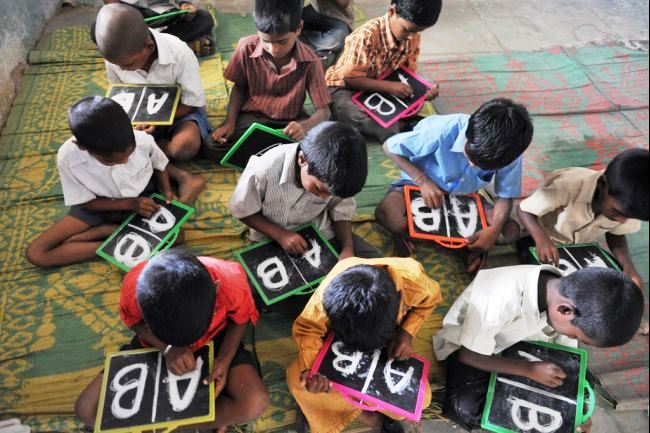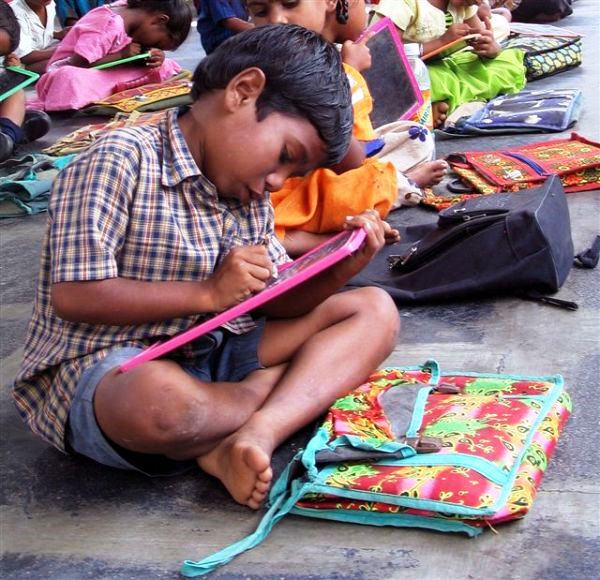 How does it feel if half of the buses and trains supposed to be running are canceled at random? And how long will we stand such disruption? At most a day or two, maybe. Well, a similar disruption in the daily lives of children has been happening quietly for years. About half of the time, there is no teaching going on in government primary schools, while these voiceless students suffer.
How does it feel if half of the buses and trains supposed to be running are canceled at random? And how long will we stand such disruption? At most a day or two, maybe. Well, a similar disruption in the daily lives of children has been happening quietly for years. About half of the time, there is no teaching going on in government primary schools, while these voiceless students suffer.
A lot has already been said and written about the poor state of elementary education in India. Investment in elementary education, though it takes years to bear fruit, is recognized as a crucial factor in any nation's life and development. Providing free elementary schooling for all children is seen across global and ideological barriers, as an indispensable duty of government. In India, it also holds the potential of proactively fixing the problems of poverty, development, unemployment and population growth. One may however wonder what will happen if all the children in the country between six and fourteen years of age suddenly start going to school. Well, the entire school system would collapse in a day's time, because we are not even ready for such an influx.
 The problem with education system in India is primarily in infrastructure and implementation. Then there is this ever-widening gap between the way government perceives education and what is actually required. In the past few years, the Ministry of Education has become the Ministry of Human Resource Development. "Primary" education for children in the 6-11 age group has replaced "elementary" education for those in the 6-14 age group. Nobody in government talks about the right to meaningful school education for all Indian children, but only about raising literacy levels through short-term literacy campaigns and non-formal education. One is bound to wonder the connection is between globalization and the 100 million child workers of India.
The problem with education system in India is primarily in infrastructure and implementation. Then there is this ever-widening gap between the way government perceives education and what is actually required. In the past few years, the Ministry of Education has become the Ministry of Human Resource Development. "Primary" education for children in the 6-11 age group has replaced "elementary" education for those in the 6-14 age group. Nobody in government talks about the right to meaningful school education for all Indian children, but only about raising literacy levels through short-term literacy campaigns and non-formal education. One is bound to wonder the connection is between globalization and the 100 million child workers of India.
 There are several issues concerning elementary school education in India. To begin with, enrollment does not even mean attendance. Almost everywhere in India, children’s attendance in the school register is far below the enrollment. Attendance does not imply learning in these schools either. Many students visit school around afternoon just for the mid-day-meals. Even in the functional schools, levels of teaching activity is abysmally low. The major reason being the widespread shortage of teachers. Many of the schools currently being run are single-teacher schools. And the same teacher is responsible for election duties, census duties, monitoring mid-day meals, and it time remains - teaching. The situation is aggravated by the fact that teachers are often absent, or come late and leave early.
There are several issues concerning elementary school education in India. To begin with, enrollment does not even mean attendance. Almost everywhere in India, children’s attendance in the school register is far below the enrollment. Attendance does not imply learning in these schools either. Many students visit school around afternoon just for the mid-day-meals. Even in the functional schools, levels of teaching activity is abysmally low. The major reason being the widespread shortage of teachers. Many of the schools currently being run are single-teacher schools. And the same teacher is responsible for election duties, census duties, monitoring mid-day meals, and it time remains - teaching. The situation is aggravated by the fact that teachers are often absent, or come late and leave early.

During the past few years, there has been mass appointments of local contract teachers (shiksha karmis, shiksha mitras, etc) at salaries far below those paid to permanent teachers in the same government schools. Currently, contract teachers account for nearly 40 per cent of all teachers. Local selection by the gram panchayats and the contractual nature of their appointment were expected to make these teachers more accountable. Many State governments also saw this as a means of expanding teacher cadres at a relatively low cost. This model, however, has failed in implementation. In the initial stages, contract teachers were appointed to assist the more experienced regular teachers. But in many schools now, contract teachers handle students on their own. Most new recruits get trained through distance education or short in-service training. Without adequate qualifications, training, numbers and support, teaching standards have taken further hit.
This pathetic state of educational affairs threatens to ruin the lives and future of children in India. In a functioning democracy, this would be a major national concern. Yet, very little is being done. The rhetoric of elementary education as a fundamental right goes has lost face due to the stubborn failure in making the schooling system work. The first step to fix this, is to stop tolerating the gross injustice that is being done to children. Wasting their time day after day in idle classrooms is nothing short of a crime.
